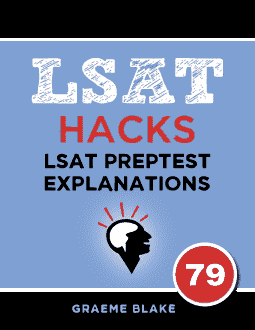DISCUSSION: This is technically a “main purpose” question, but in its style it’s more like a flaw question from logical reasoning. Here, the wrong answers simply have nothing to do with what happened in the passage. But, they’re abstract and hard to understand. That’s exactly what flaw type answers are like. This fits the trend of RC questions on recent LSATs becoming more like LR questions.
___________
- This didn’t happen.
Example of passage: We have a new policy that makes specific performance the standard contract remedy. Let’s try to predict the consequences of this move. - The passage didn’t say that specific performance was new. It’s uncommon, but old things can be uncommon.
- Which procedures? You’d need to actually be able to name some. Only specific performance and monetary remedy are mentioned.
Example of argument: Let’s see how specific performance interacts with a writ of habeas corpus, and further when a writ of mandemus has been issue in a property case with a property in fee simple, where subinfeudination is invoked but is not relevant.
(This is legal gibberish, even though all the terms are real ones.) - This didn’t happen.
Example of generating guidelines: So, we are considering cases where specific performance is sought, and where the item in dispute is unique. Let’s make some guidelines for this type of case:
1. Money can’t replace the item
2. The item is truly unique
3. The harm is great enough to warrant the court’s attention
4. etc. - CORRECT. The two legal remedies are specific performance and monetary awards. The passage tells us when specific performance is appropriate (paragraph 2) and when it is not (paragraph 3).

Want a free Reading Comp lesson?
Get a free sample of the Reading Comprehension Mastery Seminar. Learn tips for solving RC questions


Leave a Reply